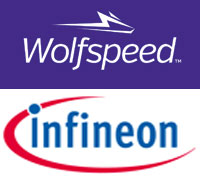 Infineon’s acquisition of Wolfspeed appears near death, after the Committee on Foreign Investment in the United States (CFIUS) concluded that the acquisition “poses a risk to the national security of the United States.” The management structure proposed by Infineon, presumably with firewalls, apparently did not address the national security concerns seen by CFIUS.
Infineon’s acquisition of Wolfspeed appears near death, after the Committee on Foreign Investment in the United States (CFIUS) concluded that the acquisition “poses a risk to the national security of the United States.” The management structure proposed by Infineon, presumably with firewalls, apparently did not address the national security concerns seen by CFIUS.
Given this landscape, Infineon stated in a press release “that there is a considerable risk that the transaction, as agreed, is not going to close.” Nonetheless, the release said that Infineon is committed to working with CFIUS and Cree to address the national secuirity concerns raised by CFIUS.
Cree, Qorvo and Raytheon have received substantial funding from the U.S. Department of Defense (DoD) to develop GaN technology, which is viewed as a disruptive or “leap ahead” technology for military systems such as phased array radar and electronic warfare. Foreign ownership of a principal source of the technology, even an ally of the U.S., would logically be a concern.
In other cases of foreign ownership of a defense company — BAE Systems’ acquisition of the former Sanders unit of Lockheed Martin, for example — a U.S. subsidiary with a firewall between the U.S. and foreign owner was established to keep the operations independent and safeguard sensitive and classified information.
Infineon and Cree announced the proposed acquisition of Wolfspeed in July 2016. Infineon was to pay $850 million for the GaN RF, SiC power electronics and SiC substrate units of Cree, rebranded as Wolfspeed. As recently as Infineon’s earnings release on February 2, CEO Reinhard Ploss said “everything is on schedule.”
This is the full text of Infineon’s February 8 press release:
Infineon Technologies AG announces the following regarding its proposed acquisition of Wolfspeed Power & RF and the related substrate business (“Wolfspeed”) from Cree Inc.:
The Committee on Foreign Investment in the United States (CFIUS) informed Infineon and Cree that the transaction poses a risk to the national security of the United States. Furthermore, CFIUS had not identified any mitigation measures that it believed would adequately mitigate the particular national security risks posed by the transaction.
Against this background, Infineon is of the opinion, that there is a considerable risk that the transaction, as agreed, is not going to close.
Infineon remains committed to work closely together with both CFIUS and Cree to find solutions that would mitigate the concerns raised by CFIUS.
